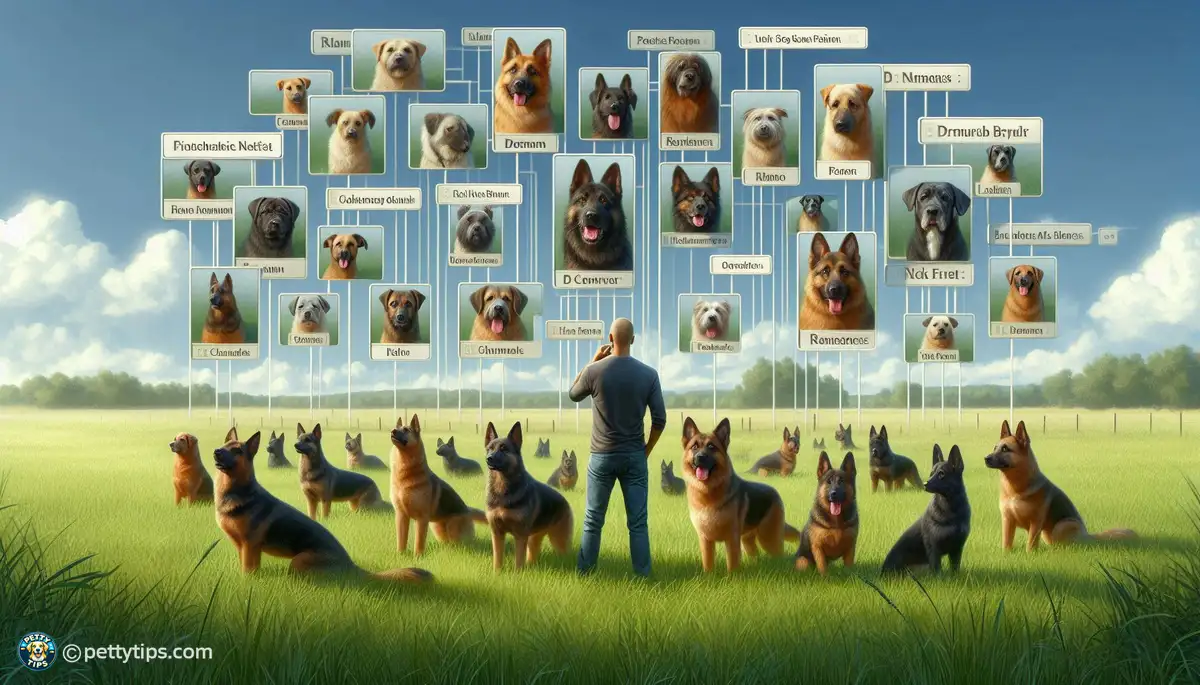
Clicker Training for Exotic Pets: Tips for Unconventional Animals
Freddy Bussey - Sep 15, 2024 - 8 min read


Understanding your daily routine is crucial when choosing a working dog breed that will seamlessly fit into your lifestyle. Consider factors such as your work schedule, hobbies, and social activities. If you lead an active lifestyle with frequent outdoor adventures, you'll want a dog that can keep up with your energy levels. Conversely, if you have a more laid-back routine, a calmer breed might be a better match.
Your living situation plays a significant role in determining the right working dog breed for you. Consider the size of your home, whether you have a yard, and any restrictions imposed by landlords or homeowners' associations. Some breeds thrive in spacious rural settings, while others are well-suited to apartment living. Understanding these factors will help you narrow down your options and find a breed that can thrive in your environment.
Honesty is key when assessing your experience and abilities as a dog owner. Working dog breeds often require experienced handlers who can provide proper training, mental stimulation, and physical exercise. If you're a first-time dog owner or lack experience with high-energy breeds, you may want to choose a breed that is more forgiving of mistakes and easier to train.
Just as humans have different personalities and preferences, so do dogs. Consider your own temperament and preferences when selecting a working dog breed. Do you prefer an independent dog that can entertain itself, or do you want a loyal companion that thrives on human interaction? Understanding your own personality and preferences will help you choose a breed that aligns with your lifestyle and interests.
Herding breeds are known for their intelligence, agility, and natural instinct to herd livestock. Popular breeds in this category include Border Collies, Australian Shepherds, and German Shepherds. These dogs excel in activities such as obedience trials, agility courses, and herding competitions. However, they require plenty of mental stimulation and physical exercise to prevent boredom and destructive behaviors.
Sporting breeds are highly energetic dogs bred for hunting and retrieving game. Examples of sporting breeds include Labrador Retrievers, Golden Retrievers, and English Springer Spaniels. These dogs thrive on outdoor activities such as hiking, swimming, and retrieving games. They also make excellent family pets due to their friendly disposition and willingness to please.
Working breeds are bred for tasks such as guarding, pulling sleds, and performing search and rescue missions. Breeds in this category include Siberian Huskies, Rottweilers, and Doberman Pinschers. These dogs are intelligent, loyal, and often have strong protective instincts. They require firm leadership and consistent training to ensure they are well-behaved members of the family.
Terrier breeds are known for their feisty personalities and strong prey drive. Examples of terrier breeds include Jack Russell Terriers, Staffordshire Bull Terriers, and Airedale Terriers. These dogs were originally bred for hunting rodents and vermin, but today they excel in activities such as agility, earthdog trials, and obedience competitions. Terriers are often independent and spirited, requiring early socialization and training to channel their energy appropriately.
Every dog breed is prone to certain health issues, and working breeds are no exception. Before choosing a working dog breed, research common health problems associated with that breed and consider whether you're prepared to handle any potential medical expenses. Some breeds are prone to hip dysplasia, heart conditions, or hereditary eye disorders, so it's essential to choose a reputable breeder who prioritizes health screenings and genetic testing.
When choosing a working dog breed, it's important to consider their lifespan and how they age. Larger breeds tend to have shorter lifespans than smaller breeds, with some giant breeds living only 7-10 years on average. Additionally, certain breeds are prone to premature aging or age-related health issues. Understanding the typical lifespan and aging process of your chosen breed will help you plan for their long-term care and wellbeing.
As working dogs age, their activity levels and nutritional needs may change. It's essential to make lifestyle adjustments to accommodate your senior dog's changing needs. This may include switching to a senior-specific diet, providing joint supplements, and adjusting exercise routines to accommodate any mobility issues. Additionally, regular veterinary check-ups become even more critical as dogs age, allowing for early detection and treatment of age-related health issues.
Unfortunately, all dogs eventually reach the end of their lives, and it's essential to plan for palliative care and end-of-life decisions. As your working dog approaches the end of their life, you may need to make difficult decisions regarding their quality of life and when to say goodbye. It's essential to have open and honest conversations with your veterinarian about your dog's prognosis and any available palliative care options. Additionally, consider how you'll cope with the loss of your beloved canine companion and seek support from friends, family, or support groups if needed.
Choosing the right working dog breed for your lifestyle is a decision that requires careful consideration and research. By assessing your daily routine, living situation, experience level, and preferences, you can narrow down your options and find a breed that aligns with your lifestyle and interests. Whether you're drawn to herding breeds, sporting breeds, working breeds, or terriers, there's a perfect canine companion out there for you. Remember to prioritize health and longevity, make adjustments as your dog ages, and cherish every moment with your loyal four-legged friend.